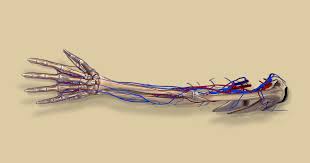Lucknow, February 22, 2025: India has developed a novel antibiotic to combat antimicrobial resistance (AMR) and a new drug to address the burden of kala-azar, also known as visceral leishmaniasis (VL). These breakthroughs were discussed by eminent scientists on the second day of the 9th International Symposium on Current Trends in Drug Discovery Research at the CSIR-Central Drug Research Institute in Lucknow.
The symposium brought together experts from diverse fields to share recent advancements in drug resistance, CAR T-cell therapy for cancer care, and treatments for parasitic and viral diseases.
Kala-Azar: A Major Step Toward Elimination
Prof. Shyam Sundar from Banaras Hindu University (BHU), Varanasi, traced the epidemiological journey of visceral leishmaniasis in India, from its origin to the country’s efforts toward elimination. He highlighted the impact of single-dose liposomal amphotericin B (LAmB) as a game changer in the treatment of kala-azar.
According to the National Centre for Vector Borne Diseases Control (NCVBDC), India has successfully met its target for eliminating kala-azar. Initially, the goal was to achieve elimination by 2010, but persistent challenges pushed the deadline to 2023. Prof. Sundar emphasized the importance of maintaining this progress until 2025 to receive official elimination certification from the World Health Organization (WHO).
Fighting AMR with Novel Antibiotic
The growing threat of antimicrobial resistance (AMR) has rendered many existing antibiotics ineffective, leading to a global health crisis. Addressing this challenge, Dr. Sachin S. Bhagwat from Wockhardt Research Center, Aurangabad, presented a breakthrough in antibiotic development. He discussed a novel beta-lactam plus beta-lactam enhancer combination known as WCK 5222, which demonstrates significant efficacy against pan-drug-resistant Gram-negative bacteria.
Dr. Bhagwat noted that AMR-related infections account for up to 8.85 lakh deaths annually, with an additional 9.6 lakh linked to sepsis. The novel beta-lactam enhancer, Zidebactam, when combined with cefepime (WCK 5222), showed potent activity against 35,000 global pan-drug-resistant Gram-negative isolates. The antibiotic has already saved over 45 lives under compassionate use and has completed successful trials for severe meropenem-resistant infections. It is expected to revolutionize the treatment of life-threatening Gram-negative infections.
Advancements in Cancer and Viral Research
India is also making strides in cancer treatment through indigenous CAR-T cell therapy. Prof. Rahul Purwar from IIT Bombay highlighted the development of the first “Make in India” CAR-T cell therapy, which is a robust, safe, and affordable technology platform validated through Phase I and II clinical trials. He emphasized that CD19 CAR-T therapy was approved by CDSCO for commercial use in October 2023 and has since benefited over 300 patients across the country.
On the front of viral research, Prof. Sudhanshu Vrati from the Regional Centre for Biotechnology (RCB), Faridabad, emphasized the urgent need for novel antivirals to combat emerging viral pathogens. He showcased research on a novel antiviral against the Chikungunya virus, developed in his laboratory.
Additionally, Prof. Gaurav Batra from the Translational Health Science and Technology Institute (THSTI), Faridabad, presented new findings on Arboviral diagnostics, particularly for dengue, Zika, and chikungunya. His team is working on rapid antigen tests for Zika and chikungunya, with plans to integrate them into a multiplex diagnostic platform.
Conclusion
The symposium highlighted India’s commitment to tackling some of the most pressing global health challenges through drug discovery and innovation. The advancements in kala-azar treatment, AMR solutions, cancer therapies, and viral research showcase the country’s growing capabilities in medical science and pharmaceutical development.
Disclaimer: This article is based on information presented at the 9th International Symposium on Current Trends in Drug Discovery Research. The findings and claims mentioned are subject to further clinical validation and regulatory approvals before widespread adoption.












